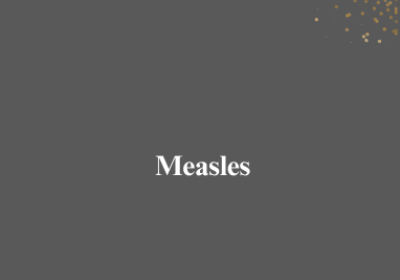
Cervical Cancer Prevention
The Importance of HPV Screening in Cervical Cancer Prevention
- By --
- Thursday, 17 Aug, 2023
The Importance of HPV Screening in Cervical Cancer Prevention
Human Papillomavirus (HPV) is a dangerous and common sexually transmitted infection. which can leads to several health issues such as including cervical cancer by high risk HPV. Cervical cancer is a serious condition that affects millions of women worldwide.
Fortunately, advancements in medical science have led to the development of effective screening methods like the HPV test and Pap smear to detect and prevent cervical cancer in its early stages if we detect this before.
In this article, we will delve into the significance of HPV screening, how it works, its implications, and its role in cervical cancer prevention.
Understanding the HPV Test
The HPV test is a critical tool in the early detection of HPV infections, which can potentially lead to cervical cancer. It involves collecting cells from the cervix, similar to a Pap smear, and analyzing them for the presence of HPV DNA.
This test can identify high-risk HPV strains that are most likely to cause cervical cancer. Regular HPV testing, along with Pap smears, can greatly enhance the chances of detecting precancerous changes and preventing cervical cancer.
Unraveling Abnormal Pap Smears
An abnormal Pap smear doesn't necessarily indicate cancer. It signifies that there are unusual changes in the cervical cells. These changes could be due to an HPV infection or other factors.
Further evaluation, often including an HPV test, is required to determine the exact cause of the abnormality. Timely follow-up and appropriate medical interventions based on test results can prevent potential progression to cervical cancer.
HPV Screening for Men
While HPV-related cancers are more common in women, men are not immune to HPV infections. HPV can lead to various cancers in men, including genital, anal, and oropharyngeal cancers.
However, routine HPV screening is not as established for men as it is for women. Vaccination against HPV can offer protection to both sexes, reducing the risk of HPV-related cancers.
The Role of HPV DNA Test
The HPV DNA test is a sensitive method to identify the genetic material of the virus in cervical cells. It provides crucial information about the specific type of HPV infection present.
This test aids healthcare professionals in determining the risk level associated with the infection and guiding appropriate management strategies.
Empowering Women with HPV Screening
For women, regular HPV screening is of paramount importance. It helps in identifying HPV infections early and monitoring any changes over time.
When combined with Pap smears, it provides a comprehensive approach to cervical cancer prevention. This proactive approach allows for timely intervention, reducing the chances of cervical cancer development.
Understanding HPV HR
HPV HR stands for High-Risk Human Papillomavirus. These are strains of the virus that have a higher potential to cause cancerous changes in cells.
Detection of HPV HR in an HPV test can raise concerns, prompting further investigation and medical guidance to prevent possible progression to cervical cancer.
Comprehensive Tests for Cervical Cancer Detection
Apart from the HPV test and Pap smear, other tests like colposcopy and biopsy are employed if abnormalities are detected.
A colposcopy involves closely examining the cervix with a magnifying device, and a biopsy involves collecting a small sample of cervical tissue for analysis. These tests collectively provide a comprehensive evaluation of the cervical health and guide medical decisions.
Preventing Cervical Cancer
Preventing cervical cancer involves a multi-pronged approach. Regular HPV screening, along with Pap smears, allows for the early detection of abnormalities.
Additionally, HPV vaccination for both males and females before sexual activity can significantly reduce the risk of contracting HPV infections that can lead to cancer. Leading a healthy lifestyle, practicing safe sex, and regular medical check-ups also play crucial roles in prevention.
Understanding Pap Smear Results
A Pap smear result may fall into various categories, including normal, atypical, or showing signs of precancerous changes.
The healthcare provider will interpret the results and recommend appropriate follow-up based on the findings. Regular screenings ensure that any concerning changes are promptly addressed.
HPV Testing: A Step Towards Empowerment
The availability of home HPV testing kits has made screening even more accessible. These kits allow individuals to collect their samples in the comfort of their homes and send them to a lab for analysis.
While these kits offer convenience, it's important to ensure their accuracy and follow professional medical guidance for any positive results.
Dealing with Positive HPV Results
A positive HPV test doesn't necessarily mean cancer. It indicates the presence of the virus, and further tests are needed to determine the extent of the infection and associated risks.
Healthcare providers will devise a suitable plan based on the specific circumstances, which may include monitoring, follow-up tests, or medical interventions.
The Reassurance of Normal Pap Smears
A normal Pap smear result is reassuring, but it doesn't rule out the need for continued screenings. Regular screenings remain essential, as they can detect changes that may not be immediately evident but could develop into problems over time.
Conclusion
HPV screening plays a pivotal role in cervical cancer prevention. Through HPV testing and Pap smears, individuals can take proactive steps towards maintaining their cervical health.
Early detection of HPV infections and abnormal changes can lead to timely interventions, significantly reducing the risk of cervical cancer. Alongside medical advancements, lifestyle choices, safe sexual practices, and regular screenings form a comprehensive strategy in the fight against cervical cancer.
By staying informed and proactive, individuals can prioritize their well-being and contribute to a healthier future.
To learn more about HPV screening, you can refer to the informative article on
[The HPV screening-Deccan Herald](https://www.deccanherald.com/health/healthcare/the-hpv-screening-2-2646562).





